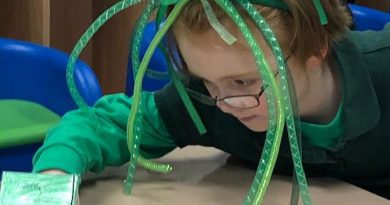The Qualities of Exceptional Mentor Teachers
Hundreds of teachers answered the question ‘What makes a great mentor?’ We read all 851 comments and distilled the very best advice.
The best mentors are more than hand-holders or tour guides. They’re skilled but accessible practitioners who “pass on their knowledge through informal conversation and everyday modeling,” says middle school ELA teacher Heather Wolpert-Gawron. They’re world-class listeners who are dedicated to developing your unique educational voice, but when needed, they’re willing to “push back and disagree with you.”
While research shows that strong mentors improve new teacher retention, there’s also a dramatic pass-through effect for students. When novice teachers receive high-quality and consistent mentoring, a 2017 study from SRI Education found that their students in turn showed impressive academic gains—an additional two to four months of learning in reading and an additional two to five months of learning in math, when compared with their peers in a control group.
Mentoring is different from induction—helping new teachers navigate the practical aspects of the job, such as how to follow field trip protocols or work the laminator. Mentors play a more expansive role, helping new teachers “manage the grind of daily struggles and the challenges of the profession,” writes reading and language arts teacher Kimberly Long for EducationWeek. “Papers are spilling off your desk. The voicemail light is blinking. Your email inbox is never ending, and little smiley face stickers are somehow stuck in your hair. We’ve all been there. … As an early career teacher, I have been blessed to work with many incredible teachers who have salvaged my sanity, dried my tears, and challenged me to be more than I thought I could be.”
Recently, when we asked our readers the question “What makes a really good mentor teacher?” hundreds of educators weighed in. We combed through your responses across Facebook, Twitter, and Instagram and distilled the very best qualities of standout mentor teachers. We also consulted our Edutopia archives and outside sources to see what educators have written on the topic. Here, then, are six qualities of exceptional mentor teachers.
Good mentors have good ears: A common misconception of good mentoring is that it’s fundamentally about dispensing advice. In fact, according to our audience, the heart of good mentoring is listening—the word (and its variants) showed up 67 times in the thread, far outpacing any other trait.
The first few years in the classroom are a roller-coaster of emotions and second-guessing. The best kind of mentor “listens with empathy,” says Cait Marie, an English teacher in New Jersey, and knows how to redirect “worries and emotions positively,” writes educator Alec Mielke via Facebook.
Active listening—a structured, nonjudgmental way of listening and responding where the listener delivers undivided attention and withholds judgment—is “especially important in mentor-mentee communication,” writes Debra Meyer, a professor of education at Elmhurst University and former classroom teacher. “Active listening helps us learn, and good mentors are listening to learn. They want to help mentees consider their options and reflect.”
They model, but resist molding: Successful mentorship isn’t about correction or molding novice teachers into carbon copies. The best mentors quietly model good pedagogical practices and leave “enough space” for mentees to find their own voices, writes New Zealand educator Nicholas Orr, echoing a priority voiced by numerous educators in the thread.
Indeed, according to teacher Kim Halvorson, the ability to “stand back” and let mentees “make mistakes” before gently suggesting better alternatives for the next time are qualities of the most trusted mentors. They always “encourage the new teacher to try new strategies and be themselves,” noted Kevin Leichtman, an English teacher at Monarch High School in Florida. “I had a fabulous mentor who had her own style and system. She didn’t make me conform to her style, though. She showed me what worked for her (very successfully) while also encouraging my creativity. That helped me gain confidence in trying new things and growing in my own pedagogy.”
They’ve seen it all: Assigning mentors before they’ve accumulated years of classroom experience is a mistake. There’s simply a level of skill and expertise that only time can provide: “I took on the role way before I was ready, and it felt like a disaster,” admits teacher Erin Ruiz-Prunchak.
Experienced mentors have the perspective to connect the hows and whys of teaching. They should be “very confident in their classroom management and lesson planning, and be able to articulate why they do what they do,” agrees teacher Kelly Pope, responding via Facebook. And when things go awry, as they always do, says Ruiz-Prunchak, mentors demonstrate and model resilience: They’re “strong enough with classroom management” to help mentees “repair and recover.”
They strike the right balance: As teachers navigate unprecedented levels of professional stress and burnout, mentors can show early-career teachers how to set “clear work/life boundaries,” impressing on them “the importance of caring for students and self,” says teacher Kate Kluegel. And when things get tough, mentors can demonstrate self-care, modeling how to “put on their own Band-Aid. You know, just in case,” says educator Jessica Brown.
When work becomes overwhelming, mentors can help mentees work the system, writes Meyer, the Elmhurst University professor of education. “New teachers typically have to hit the same high targets for student learning outcomes and professional responsibilities—with the same class sizes and schedules,” Meyer writes. “This might mean that the mentor runs interference when the mentee is overloaded, requests additional resources, or provides help that takes time off the mentee’s ‘to-do’ list.”
They show up: Because mentoring takes time, the best mentorship often takes place within formal programs that provide participants with scheduled time and deliberate structure. In the end, showing up is more than half the battle.
Iowa educator Jody Lyon’s mentor “was extremely good at dedicating the time we had to exactly what we were focusing on.” Their get-togethers were always “focused meetings without gossip.”
To ensure that level of focus, discuss and set norms at the beginning of the school year, says Amie Weinberg, a teacher-mentor program director and former classroom teacher. Put norms in a Google Doc and have both teachers sign off—and be sure to amend throughout the year if needs or expectations change. “This dialog is important, as it builds a professional foundation for their yearlong collaboration and defines each one’s roles and responsibilities,” Weinberg writes.
Get your logistics in order, too: Set the day and time that work best for weekly meetings for both teachers, “as well as details like where, for how long, and cancellation procedures,” notes Weinberg. It’s also a good idea to set expectations around unplanned interactions—when a mentee is dealing with an uncooperative student or a lesson that bombed, for instance, and needs support or advice. Should the mentee send an email to the mentor, text, call, or stop by their classroom? “Sharing preferences and working out details is a straightforward way to begin the collaborative journey,” Weinberg says.
They encourage reflection: Mentor teachers, many educators, told us, help mentees develop a practice of regular, meaningful reflection. “For seasoned teachers, reflecting comes so naturally we forget how important it is,” writes Anne Stewart on Facebook. “Ask the question: How did _____ impact your students? How do you know?”
At the same time, just as they would in their own practice, a good mentor teacher is “constantly reflecting and asking herself questions that keep her goals in sight and her apprentice feeling seen, heard, and appreciated,” adds jennasteedconnkatt via Instagram.
Experienced mentors, notes Weinberg, cultivate reflective thinking as a core part of the mentoring process and ask questions that help expand and deepen mentees’ learning. “Mentors who coach this way have shared with me that they believe a mentee’s reflection more definitively impacts professional growth than questioning does, because thinking about a lesson or instructional strategies can directly lead to change,” Weinberg concludes. “The goal of reflection for growth is the reason why the pair meets weekly, even when the mentee has no specific questions or concerns.”
Source: https://www.edutopia.org/article/qualities-exceptional-mentor-teachers




